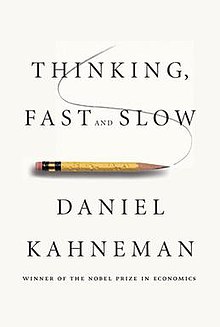Kahneman and caching
03 Feb 2018
My latest book obsession is Daniel Kahneman's Thinking, Fast and Slow. I was thinking about judgement and intuition when I picked it up, and I was looking for a framework to navigate my thinking. The book details out prospect theory, which is Kahneman and Amos Tversky's seminal work on decision making. Prospect theory is an alternative to the expected utility theory, basis for the rational decision-making economic agent.
The basis of prospect theory lies in cognitive biases that are detailed out in the book. Kahneman proposes there are two modes of thinking: System 1, which is fast and instinctive, and System 2, which is more thoughtful and analytical. Biases happen inside System 1, and a lazy System 2 fails to correct them.
At the risk of making a poor analogy that weighs some elements incorrectly over the others: Kahneman's dual system proposition reminded me of caches. Cache invalidation is known to be a hard problem, and it turns out, that's not restricted to computer science. The evolution of System 1 makes invalidation of its bias harder.
Perhaps the hardest thing here is that System 1 is great at building coherence. Given input data points, System 1 constructs a convincing story, with causation and without doubt, of how these data points were always meant to be together. The coherence and the ease of recall correlate with the degree of confidence. It is possible to confidently unware of what I'm missing, and also revel in the confidence. This is what makes understanding both sides of an argument critical. And paradoxically, this is also where (blind?) entrepreneurial optimism comes from, or how great companies are found.
The worst part of knowing this: I also know that I will not remember any of this when I need it the most. But I will try to remember that it is easier for observers to spot my biases, and I will be better off by listening to them. What could be better: observers who have read the book. And so for my own selfish benefit, Thinking, Fast and Slow is highly recommended.